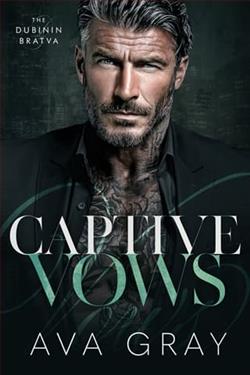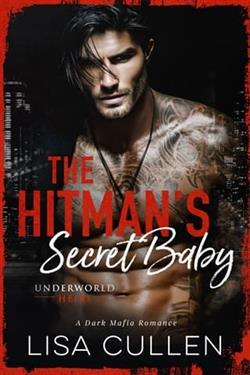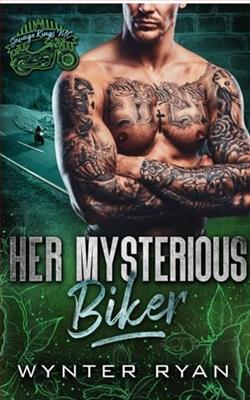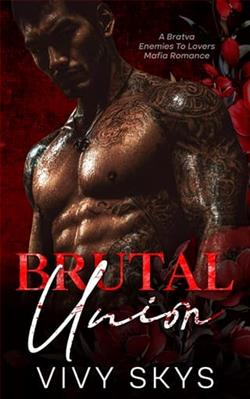Page 57 of A Vocation of Violence
“Pathetic,” Drumft spat, watching with twisted amusement that soon faltered as the ropes binding me slackened. The fibers that had bit into my wrists gave way, and the coarse threads fell from my chafed skin.
Instinct took the reins as I ducked away from Drumft’s grasp, scrambling to hoist the chair between me and them like a lion tamer in a circus tent. His fingers clawed at the air where I had been moments before, his anger a palpable force.
I ignored the throbbing pain, the sting of raw flesh, letting the surge of adrenaline sharpen my focus. I was not just Fiona Mahoney, crime scene cleaner, nor merely an immigrant shadowed by sorrow—I was survival incarnate, fueled by the memory of each soul unjustly taken and every secret buried by cruel, self-important men like him.
Drumft’s face contorted with fury as his prey turned predator. With a guttural roar, he hurled himself at me, his bulk a weapon forged from malice and brute force. But I was no longer the woman tied to a chair; I was a tempest unleashed, every lesson from Darcy, every roughhouse tussle with Flynn, every impromptu defense strategy explained by Croft now etched into my very sinew.
Drumft approached head-on, and Dieter had begun to circle to my left, but I remembered the way Darcy would dance around his opponents, the economy of motion, the precision.
I broke away one of the chair’s splintered legs and didn’t waste time by threatening, instead clubbing Oswald J. Drumft right across his sneering face.
Blood spurted from his nose, a crimson mask that seemed to unleash an even darker demon within him. He howled, more beast than man.
Dieter came at me again, his fingers clawing the air like talons.
With the agility born from years of survival—and perhaps a touch of that iron-willed Irish luck—I feinted to the left and swung hard. The chair leg connected with the side of his knee with a sickening crack, sending him sprawling to the cold concrete floor.
I struck Drumft again, targeting the solar plexus. Darcy’s voice echoed in my mind with an image of the day by the River Shannon when he’d taught me to steal Flynn’s breath with little more than a tap.
Drumft doubled over, gasping, the sound music amidst the racket of our struggle.
My lungs burned with exertion, the taste of blood and vengeance thick on my tongue.
Dieter had struggled to his feet and loomed before me, a predator’s glint in his eye, but I had been prey for too long. Thechair leg felt like an extension of my own furious will as I grasped it, splinters biting into my palm.
“Come closer, and you’ll join your master in his misery,” I snarled. Dieter hesitated, knife glinting wickedly in the meager light, but his resolve wavered as he saw the determination etched in every line of my being.
I lunged forward, feigning an attack to his face, then pivoted sharply, driving the jagged wood into the soft flesh of his shoulder. To my astonishment, he screamed and stumbled back, clutching at the wound. Seizing the moment, I bolted past him into the dark hallway.
Corridors snaked before me, their crooked angles and diverging paths a dark reflection of the twisted mind that pursued me. Mold-ridden wallpapers clung to the walls like the lingering touch of the damned, and each flickering gaslight threw monstrous shadows that danced with sinister glee. My heart thrummed a frantic rhythm in my chest, the beat punctuated by the distant thunder of footsteps chasing me.
I rounded a corner and stumbled into a narrower passage, feeling the air growing colder, as if kissed by the breath of ghosts. Drumft’s pursuit seemed to grow fainter, the distance between us widening with every desperate stride. Yet my soul was not deceived; his malice lingered in the very air, a miasma of hatred and unyielding intent.
The walls were oppressive, the air fetid with decay, but there was a window—a small, taunting promise of freedom high above. It was no more than a sliver of moonlight, but to me, it was a beacon toward life. I looked about the squalid corridor, seeking anything to aid my escape. The window was a cruel mistress, too high to reach without help, but desperation lent clarity to my mind. There, against the wall, lay a stack of crates, abandoned and forgotten.
I scrambled atop the crates, and their wood creaked ominously beneath my weight. Each movement was precise, the result of years spent navigating alleyways and rooftops, fleeing specters of my past. But now, I wasn’t running away—I was climbing toward salvation.
“That way! Get her!” Drumft barked, but his lackey was sluggish, the sticky blood soaking through the shoulder of his shirt and jacket no doubt slowing him down. With each second that ticked by, I ascended higher, my fingers finding purchase on the rough brickwork. I could almost taste the fog-laden air of London’s freedom as I hoisted myself up, reaching for the window’s ledge.
The pile wavered as Dieter reached it and kicked out at the rotting wood, breaking a corner. One more blow and the entire thing would come down.
With a final surge of effort, I wedged my fingers into the narrow opening, pulling with all the strength that anger and hope could muster. The window groaned in protest, a pained symphony to accompany my escape.
Below, Drumft’s curses faded into a frustrated echo.
As I hoisted myself up, glass bit into my palms, sharp as the memories that haunted me. But pain was a small price to pay for escape. With a grunt, I squeezed through the opening, and the edges of the window cut into my sides like the harsh words of those who’d doubted I would ever amount to anything more than a poor Irish immigrant.
“See you in hell, Drumft!” I hissed into the void as I pushed through.
I tumbled onto the cobblestones outside, the dampness seeping through my clothes, grounding me in the reality of my escape. I lay there, stunned, for a heartbeat, the mix of fear and triumph, pain and disbelief, coursing through me like a heady elixir.
A racket of masculine voices and footsteps stirred me from where I fought to catch my breath, and by the time I’d summoned the strength to run again, Drumft was pulling the heavy door to the warehouse open, and Dieter was limping after him.
I knew exactly where I was, thankfully, as the landmark of Blackfriar’s Rail Bridge grounded me on the serpentine grid of London’s streets.
Without stopping, I gathered my skirts to my knees and sprinted with every last ounce of speed I had toward the beckoning lights of Thames Street.
I ignored their bellows, listening only for the sounds of distance between my footfalls and theirs.















